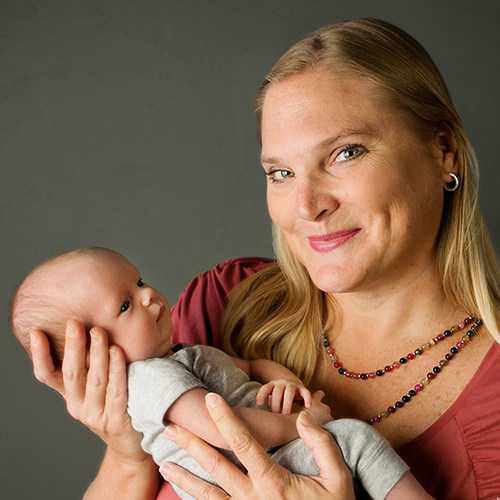
Focus on Lactation and Mental Health
Chestfeeding can be a beautiful and rewarding experience for families, but it can also be challenging, especially for those who have experienced loss or are dealing with mental health issues. Our lactation and mental health package includes three presentations that aim to improve lactation care and support for families in these circumstances.
With this lactation and mental health package, you'll have exclusive access to all three presentations, each led by an experienced expert in lactation or mental health. By investing in this package, you'll have the opportunity to enhance your knowledge and skills in lactation and mental health care, enabling you to provide more effective support to families during this crucial period. Don't miss out on this unique opportunity to broaden your understanding and improve the care you provide.
Looking to sign up as a Group of 5 or more? Contact us at [email protected] to learn more or submit your group registration.


A love for babies fueled Kimberly's 20+ year career serving families in the postpartum time frame. With a passion for nurturing new parents, she trains doulas and educators with CAPPA to support and educate for a strong beginning of bonding and connection. She loves teaching expectant families to have a smooth transition to new baby life through the Providence Healthcare System in Portland, OR. She began as a postpartum doula, then quickly added breastfeeding and new parent classes to help parents from the very beginning, and then became an IBCLC to meet their bigger challenges. She owns ABC Doula & Newborn Care in Portland, OR, is the mother of 2 grown kids, and resides in Phoenix near her parents. Like many other baby whisperers, Kimberly has honed skills for listening and responding to babies that parents can quickly learn to understand and interpret their tiny humans. When she sees parents struggling, and especially with the most fussy of babies, her heart hopes that all parents could be given the tools to compassionately support their little ones, and learn how to meet their needs, which creates more confidence in themselves in their new roles as well.
Topic: Understanding Infant Crying - [View Abstract]
2. Define the roles of helpers and visitors in the early weeks of newborn family life, and compare and contrast the roles at different stages on the Crying Curve.
3. Draw and label the Crying Curve, identifying 3 different stages of development in an infant’s early newborn life.
The Crying Curve is an evidence-based pattern of crying that begins at about 42 weeks of gestation (2 weeks of extrauterine life), peaks at 6-8 weeks of age, and sharply declines by 12-15 weeks. As many as 15 different studies have concluded that this pattern is common across infants of all cultures, gestational ages (based on a 40-week gestation), and parenting styles—and the applications are many in the early parenting world. How can parents use this pattern to help them navigate breastfeeding? How can they gather their support people, family or village to maximize positive relationships and get the support they crave? How can they utilize it to help assess their newborn and understand what is needed for their specific situation? How much crying is too much crying? Lactation consultants, postpartum doulas, and other postpartum professionals who possess this information are well positioned to help to educate parents on how to best approach their postpartum recovery period, as well as navigate the ups and downs of breastfeeding and early newborn sleep. This session will aim to explain and apply the Crying Curve in multiple ways to support and guide the newborn family.


Marie Zahorick, MS, APRN, FNP-C, IBCLC became a La Leche League Leader in 1999 and an IBCLC in 2005. After several years of working as a hospital-based bilingual Spanish-speaking IBCLC, she attended nursing school and eventually became a board-certified Family Nurse Practitioner. In the meantime, she continued working as a hospital-based lactation consultant doing inpatient, outpatient, and Level III NICU lactation. She did not get much sleep.
After graduate school, Marie was recruited to work as a nurse practitioner in psychiatry. She was fellowship-trained to manage patients in the acute inpatient setting, partial hospitalization, outpatient office, and OB patients in the general hospital setting.
She specializes in women’s psychiatry, especially medical management of women who are pregnant or lactating. Her expertise also includes general psychopharmacology. She is experienced at diagnosing and treating mental conditions such as bipolar disorder, perinatal/postpartum mood and anxiety disorders, postpartum psychosis, obsessive-compulsive disorder, premenstrual and perimenopausal mood disorders, and personality disorders.
She lives in the Chicago area with her husband and three adult children in the transient stage of life. Her children all breastfed for at least two years but now just make faces when confronted with that fact.
Objective 1: List three categories of medications used in psychiatry during the prenatal period and discuss their mechanisms of action.
Objective 2: Report the clinical applications, side effects and potential harm of drugs used in perinatal psychiatry
Objective 3: Access reputable resources in psychopharmacology to help the patient and prescriber assess the risks and benefits of medications and risks and benefits of non-treatment
If you have worked with mothers for more than a few weeks, you have encountered a mother with mental illness. You may not have recognized the symptoms while talking with your patient. Or, you may wonder if a certain psychiatric medication is “safe” during lactation.
Perinatal mood and anxiety disorders (PMAD) include a spectrum of common mental health disorders: depression, panic disorder, obsessive-compulsive disorder, posttraumatic stress disorder, bipolar disorder, and postpartum psychosis.
These disorders often ruin enjoyment of the postpartum experience and bonding with the baby. Perinatal bipolar disorder and postpartum psychosis are particularly dangerous due to severe depression and reckless or bizarre behavior that can endanger mother and baby.
Medicating the lactating mother is a careful balancing act between the health and safety of the mother and the health and safety of the baby. But failing to medicate a mother with PMAD can lead to misery, dysfunction, poor infant outcomes and in the worst situations, injury and death.
This presentation will give an overview of the different classes of antidepressants, antianxiety medications, antipsychotics, and mood stabilizers commonly used in breastfeeding mothers. Electroconvulsive therapy and transcranial magnetic stimulation will also be discussed as non-pharmacologic treatments.


Katherine is a Senior Lecturer at School of Sociology, Australian National University. Katherine’s particular areas of interest include the sociology of reproduction and motherhood, perinatal medicine, lactation sciences, human milk banking and donation. Her current projects include an Australian Research Council funded study on maternal experiences of lactation after infant death, and a Mayo Clinic funded research project on the communication with families regarding periviable infant resuscitation.
1. Describe current views regarding mothers’ experiences of lactation after infant death and consequent bereaved lactation care needs.
2. Explain how to assess if their organization's policies and practices adequately respond to bereaved families’ lactation needs.
3. Describe practice tips and techniques to enable them to better inform and support bereaved families to make decisions about their lactation care and management.
Every day, around the world, many mothers are faced with the complex task of managing the initial onset, or continuation, of their lactation following a late miscarriage, stillbirth, neonatal or infant loss. This presentation explores findings from a multi-year, multi-site Australian study conducted with bereaved families and health professionals that confirmed the limited nature and scope of lactation care currently available to bereaved families.
This presentation will provide evidence of the need and benefit of approaching lactation after infant death using a biopsychosocial care framework, so that bereaved families are able to make informed decisions from the full array of lactation management options that may be available including: suppression, sustained expression, breastmilk donation or using milk as memento. The challenges involved in providing bereaved lactation care will be acknowledged and discussed. Health professionals will be advised on what information and support bereaved families need and want, how and when this information may be best provided and who may be best placed to offer lactation care to bereaved families.
Accreditation
CERPs - Continuing Education Recognition Points
Applicable to IBCLC Lactation Consultants, Certified Lactation Consultants (CLCs), CBEs, CLE, Doulas & Birth Educators. GOLD Conferences has been designated as a Long Term Provider of CERPs by IBLCE--Approval #CLT114-07.
This program is approved for 3 L-CERPs.
If you have already participated in any of these presentations, you are not eligible to receive additional credits for viewing it again. Please email [email protected] if you have any questions.
Additional Details:
Viewing time: 4 Weeks
Tags / Categories
(IBCLC) Clinical Skills, (IBCLC) Education and Communication, (IBCLC) Pharmacology and Toxicology, (IBCLC) Psychology, Sociology, and Anthropology, Child Behavior & Dysregulation, Crying, Colic, Fussy Baby, Lactation After Perinatal, Neonatal, & Infant Loss, Medications & Herbs
How much time do I have to view the presentations?
- The viewing time will be specified for each product. When you purchase multiple items in your cart, the viewing time becomes CUMULATIVE. Ex. Lecture 1= 2 weeks and Lecture Pack 2 = 4 Weeks, you will have a total of 6 weeks viewing time for ALL the presentations made in that purchase.
- Time for viewing the talks begins once you purchase the product. For Live Webinars & Symposiums, the viewing period begins from when the live event takes place. Presentations can be accessed 24/7 and can be viewed as many times as you like during the viewing period.
What are bundled lectures?
- Presentations may be available individually or via a bundled package. Bundled lectures are a set of lectures that have been put together based on a specific category or topic. Some lectures will be available in both individual and lecture form, whereas others will be available only via a bundled lecture pack.
Will there be Handouts?
- YES! Each lecture comes with a PDF handout provided by the Speaker.
Some lectures include a Q&A, what does that mean?
- During our online conferences, presentations that occur live are also followed by a short 15 minute Question & Answer Session. The Speaker addresses questions that were posted by Delegates during the presentation. We include the recording of these Q&A Sessions as a bonus for you.
How can I receive a Certificate?
- If this presentation offers a certificate, once you are done viewing the lecture or the lectures within a bundle, submit your attendance record in order to be able to download your certificate. You'll be able to see which credits are offered for the lecture by hovering over the "Credits Available" link within the "Speakers & Topics" tab.
Professionals that selected this package also viewed

|
|

|








